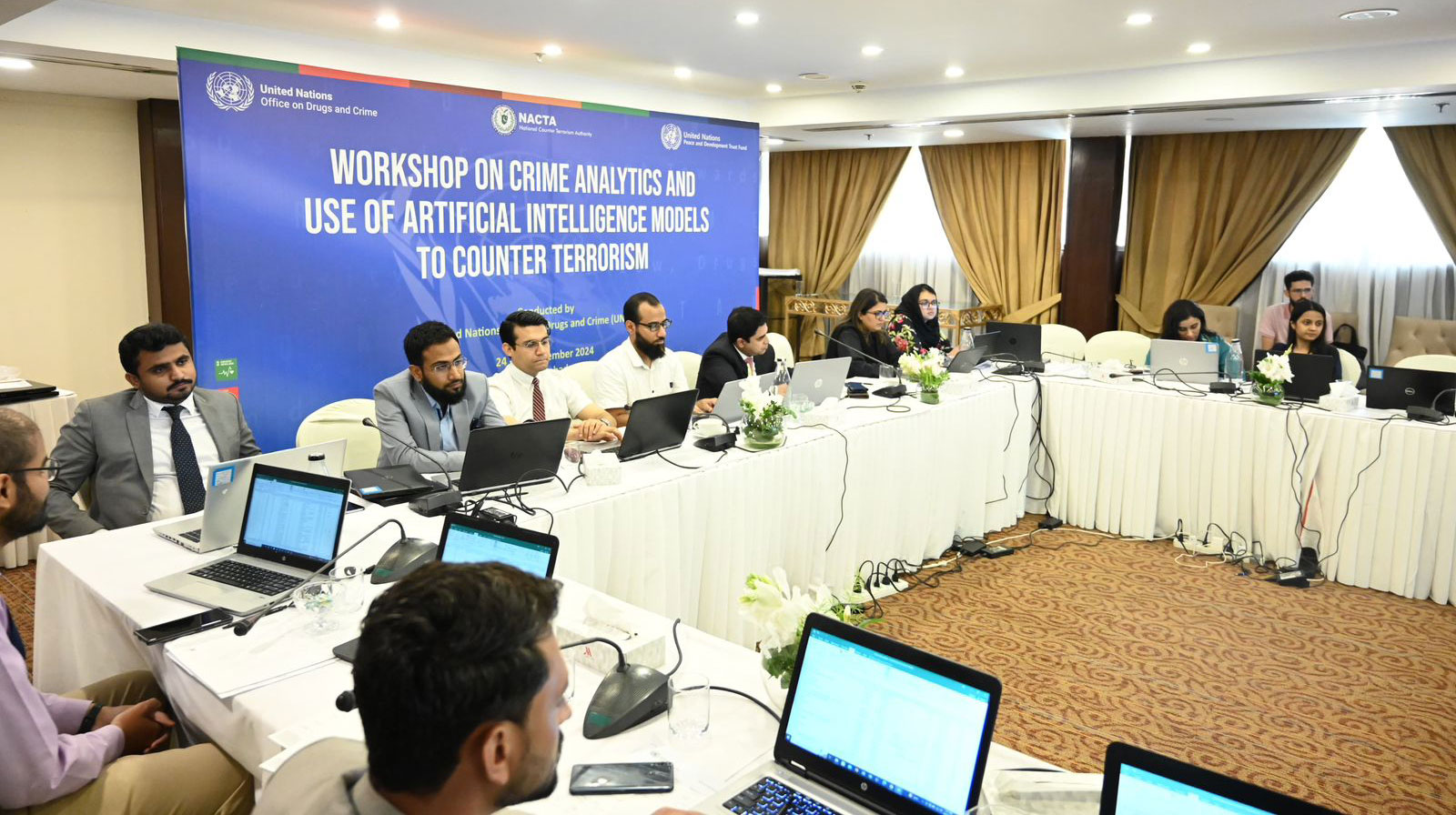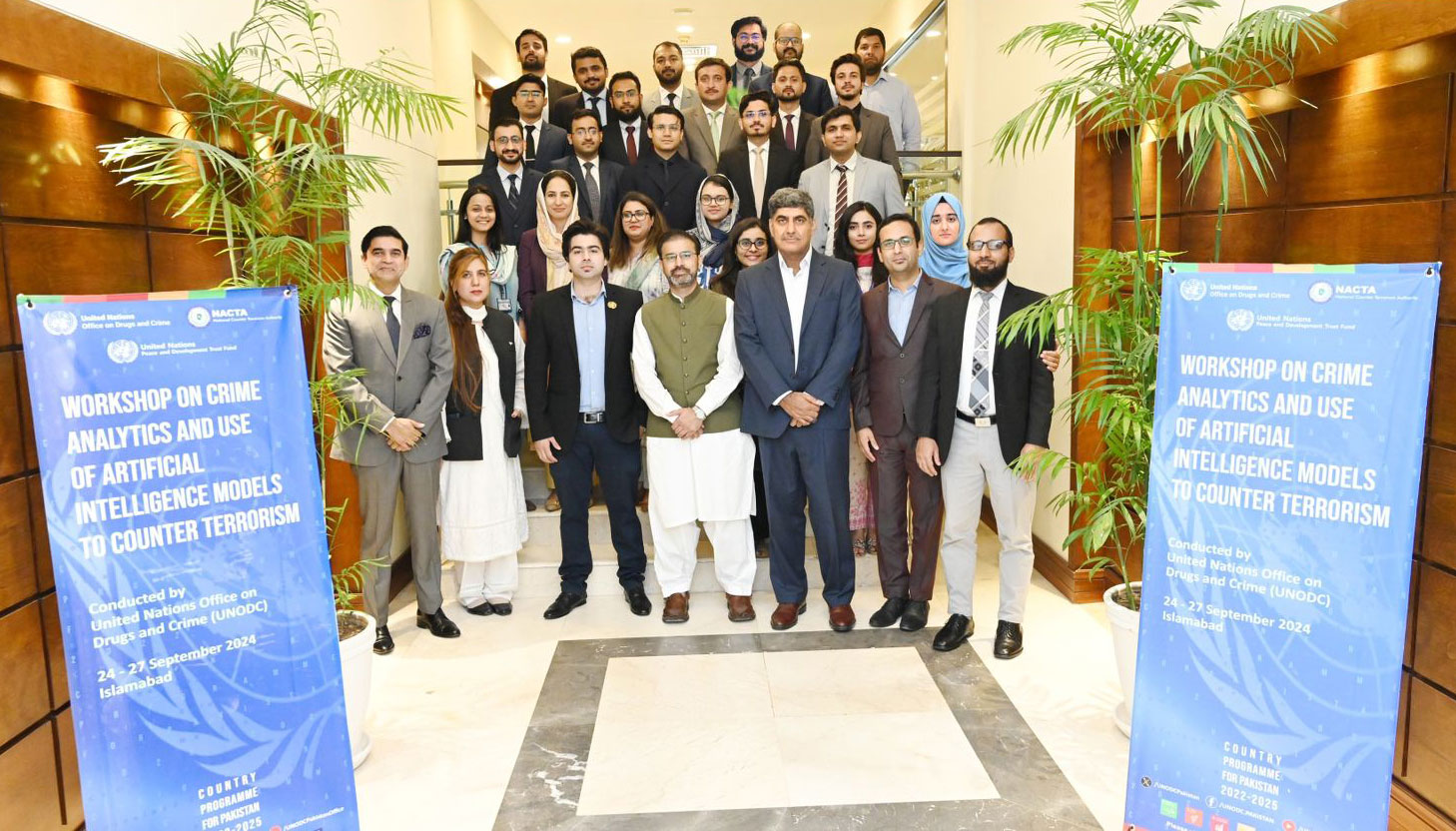
28 September 2024, Islamabad - UNODC Pakistan organized a comprehensive workshop aimed at building the capacity of National Counter Terrorism Authority analyst’s in using advanced crime analytics and artificial intelligence (AI) to combat terrorism. The workshop covered a wide range of critical topics, equipping participants with the skills and knowledge needed to analyze data and counter terrorism through innovative AI techniques. In total 25 analysts including 7 women participated in the training session.
The participants were introduced to the fundamentals of intelligence gathering, the intelligence cycle, and the development of intelligence products. Practical discussions were held around strategic intelligence and its pivotal role in decision-making. Participants also reviewed products developed in earlier training sessions on i2 Analyst's Notebook and Power BI, enabling them to grasp how past learnings integrate with the current focus on terrorism prevention. The workshop covered data analysis, beginning with an introduction to various data forms and their relevance in crime intelligence. Sessions covered both qualitative and quantitative data, with participants learning how to distinguish between structured and unstructured data and their real-world applications in intelligence work.
The hands-on segment includes Textalyser, an online tool used to analyze qualitative data specially for conducting sentimental analysis allowing participants to experiment with real-world examples. Participants were engaged through thought-provoking case studies, including analyses of social media sentiment and notable incidents such as the Al Qaeda network and the Sialkot lynching case. These examples highlighted the practical value of AI tools like Voyant in unraveling criminal networks and understanding public sentiment related to terrorist activities.


The overall workshop was dedicated to hands-on sessions with low-code and no-code AI platforms, empowering participants to leverage AI without the need for extensive programming knowledge. Practical exercises included case studies using Google Teachable Machines for image classification and Google Cloud AutoML for predictive crime analytics, both of which offer powerful tools for identifying criminal patterns and behaviors in complex datasets.
The workshop concluded with a closing session that recapped the key learnings and allowed participants to discuss the next steps in their professional development.